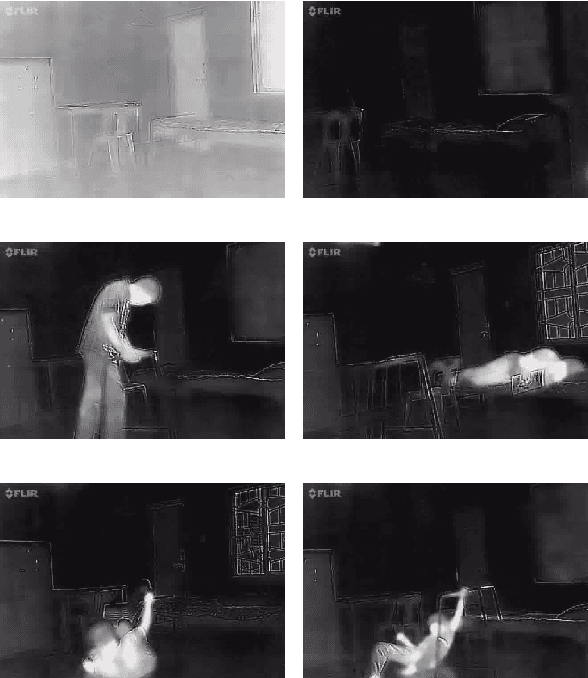Sujata Pal
Motion and Region Aware Adversarial Learning for Fall Detection with Thermal Imaging
Apr 17, 2020



Abstract:Automatic fall detection is a vital technology for ensuring health and safety of people. Home based camera systems for fall detection often put people's privacy at risk. Thermal cameras can partially/fully obfuscate facial features, thus preserving the privacy of a person. Another challenge is the less occurrence of falls in comparison to normal activities of daily living. As fall occurs rarely, it is non-trivial to learn algorithms due to class imbalance. To handle these problems, we formulate fall detection as an anomaly detection within an adversarial framework using thermal imaging camera. We present a novel adversarial network that comprise of two channel 3D convolutional auto encoders; one each handling video sequences and optical flow, which then reconstruct the thermal data and the optical flow input sequences. We introduce a differential constraint, a technique to track the region of interest and a joint discriminator to compute the reconstruction error. Larger reconstruction error indicates the occurrence of fall in a video sequence. The experiments on a publicly available thermal fall dataset show the superior results obtained in comparison to standard baseline.
 Add to Chrome
Add to Chrome Add to Firefox
Add to Firefox Add to Edge
Add to Edge